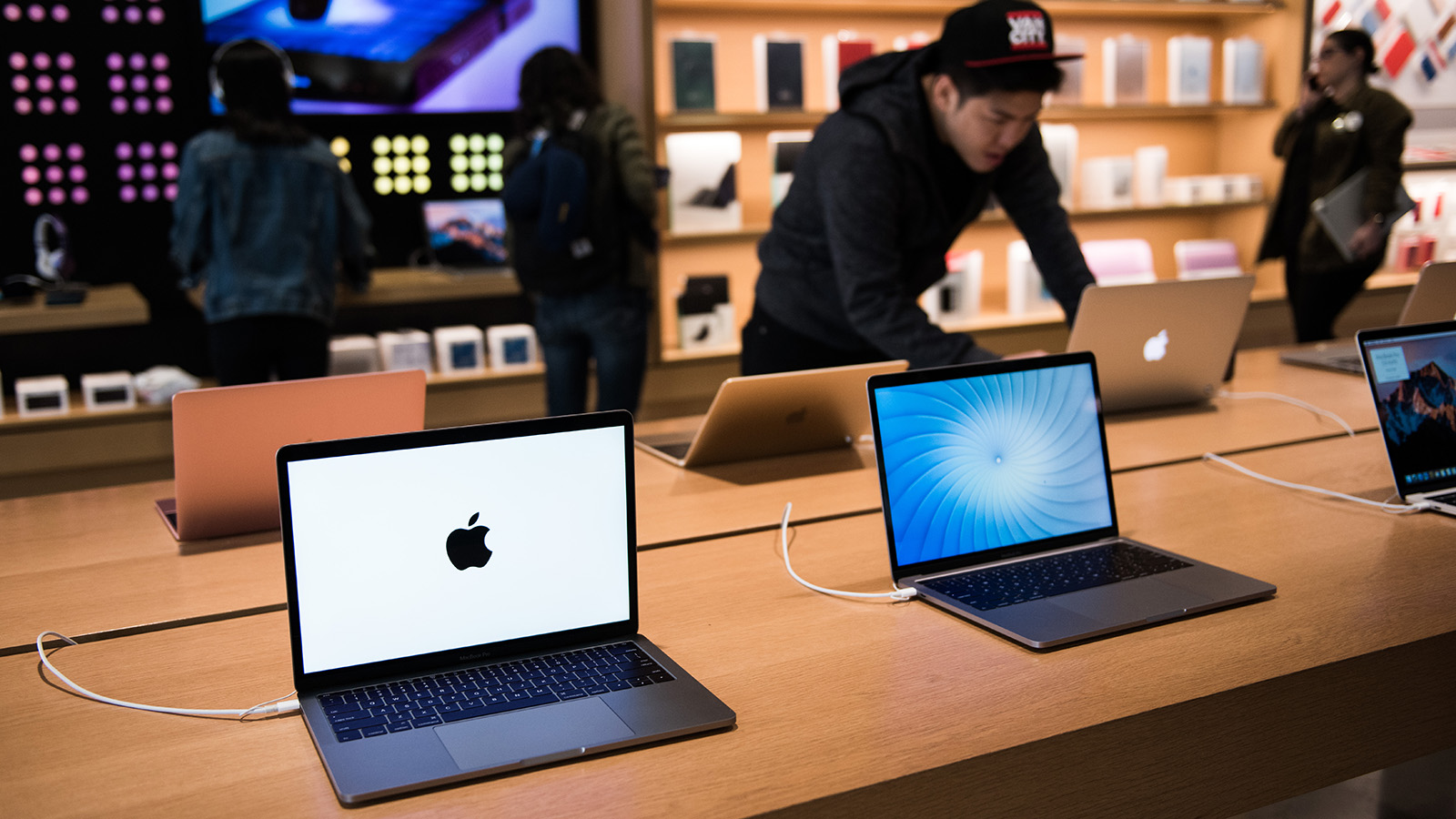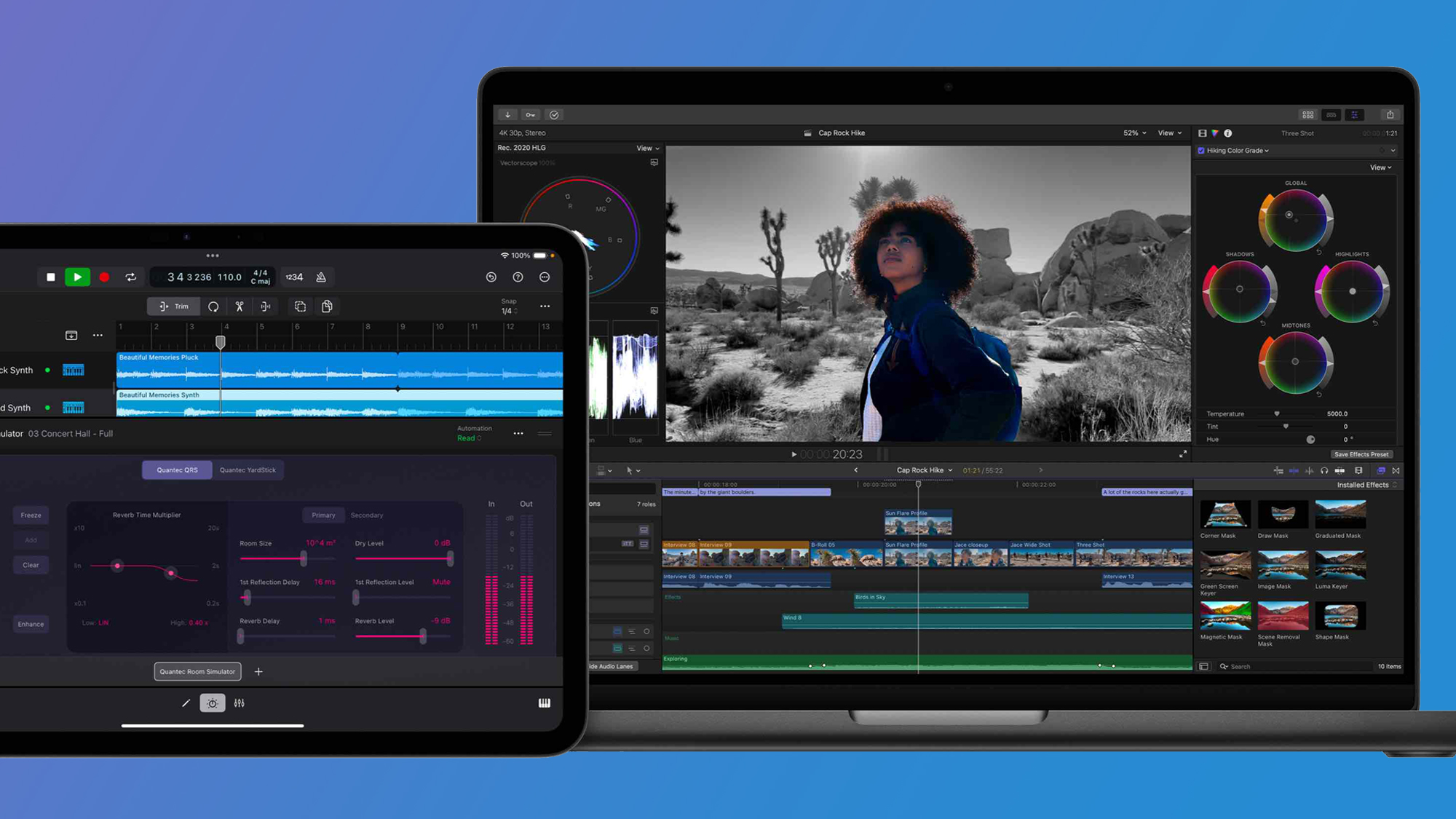Sponsored by Rippling
Mac or PC: what is the best platform for your small business
It's an age-old debate for the digital age that all companies must face

Deciding between a Mac and a PC is a pivotal choice for small business owners, as it significantly impacts costs, software compatibility, and overall operational efficiency. Several factors, including your budget, the specific requirements of your industry, and your team's daily workflows, should guide this decision.
Macs are renowned for their sleek design, user-friendly interface, and robust security features, making them a popular choice in creative industries such as graphic design, video editing, and music production.
Their seamless integration with other Apple products can enhance productivity for teams already embedded in the Apple ecosystem. Additionally, Macs have a reputation for durability and longevity, which can contribute to lower long-term costs.
On the other hand, PCs offer a wider range of hardware options and price points, making them highly customizable and generally more accessible for businesses with tighter budgets. They are compatible with a broader spectrum of software, particularly in sectors like engineering, accounting, and IT, where specific applications are often optimized for Windows.
Here's a closer look at the Mac vs. PC debate to get a better idea of what solution is best for your organization.
The free trial gives you hands-on access to all the key features under one roof - device management, security, app provisioning, user permissions, and more. Through the trial, you’ll see how it all integrates with your current workflows and policies. So, if you’re an IT manager, founder, office admin - anyone tasked with keeping the digital side of your business running smoothly start your zero-risk trial that will upgrade your management infrastructure.
Cost perspective
When evaluating the cost perspective of PCs and Macs, it is evident that PCs generally present a more affordable upfront investment. PCs come in a diverse range of configurations and price points, making them accessible to small businesses looking to equip their teams without straining their budgets.
This wide selection of PCs allows companies to tailor their purchases according to specific needs, whether they require basic functionality for everyday tasks or high-performance machines for specialized applications.
Macs, by contrast, often come with a higher initial price tag. However, several factors contribute to their appeal that can justify this expense over time.
The best Macs on the market right now are renowned for their build quality and durability, which means they are likely to withstand the rigors of daily use for a longer period than some of their PC counterparts.
This longevity can result in a lower total cost of ownership (TCO), as companies may incur fewer repairs and replacements over time.
Additionally, Macs tend to have a better resale value; if a business decides to upgrade or replace its devices, it is likely to recoup a significant portion of its initial investment.
This is particularly valuable for organizations considering budget constraints over multiple years. Furthermore, Macs generally require fewer repairs and less frequent upgrades, translating into reduced maintenance and operational costs.

For businesses focused on short-term savings, PCs are often the more practical choice, offering flexibility and a broader selection at competitive prices.
However, for those with a long-term vision, particularly in industries that prioritize efficiency and reliability, investing in Macs may yield benefits that outweigh the higher initial financial commitment.
Ultimately, the decision will depend on a company's specific needs, long-term strategy, and budgetary considerations. Macs, on the other hand, are initially more expensive but are known for their durability, substantial resale value, and fewer repair needs, which can offset the higher price over time.
For businesses that want to save money in the short term, PCs often make more sense, while Macs are appealing to those considering longevity and fewer hidden costs.
Software compatibility
When evaluating computer systems for business use, software compatibility emerges as a pivotal factor. In corporate environments, PCs dominate due to their widespread use in business and industry software applications.
This is especially true for sectors that rely heavily on specialized or legacy applications, such as finance, healthcare, and manufacturing. The prevalence of PC-based systems means that they often become the practical choice for many offices, particularly where seamless compatibility with existing enterprise systems is crucial.
Conversely, Macs have carved out a significant niche in creative industries, including graphic design, video editing, content creation, and media production.
The macOS environment is finely tuned for visual tasks, offering software like the ever-evolving Final Cut Pro and Logic Pro that are optimized for artistic workflows.

This performance advantage allows creative professionals to execute complex projects more efficiently, making Macs the preferred option for individuals and teams focused on high-quality visual output.
Furthermore, if your team operates within Apple's ecosystem, utilizing devices like iPhones and iPads, opting for Macs can significantly enhance operational efficiency.
The seamless integration across Apple devices allows for smoother workflows, enabling file sharing, continuity in applications, and enhanced collaborative tools like AirDrop and Handoff. For teams that prioritize mobile productivity and cross-device synergy, Macs present a compelling option.
Security and reliability
For small businesses, security and reliability are paramount, especially when they lack dedicated IT personnel.
When evaluating their computing options, many organizations find themselves weighing the benefits of Mac versus PC platforms in terms of these crucial metrics.
Mac computers are widely recognized for their robust built-in security features, which include advanced encryption, secure boot processes, and a tightly controlled application ecosystem.
This inherent strength against malware and cyber threats can reduce risks for smaller teams, allowing them to focus more on their core business operations rather than on security concerns.

Additionally, Apple's regular software updates and seamless integration of security upgrades help to keep systems fortified against emerging threats.
On the other hand, Windows PCs are often more frequently targeted by cyberattacks due to their larger market share. However, this does not mean they lack security; instead, PCs provide a wider array of security tools and customization options that can be tailored to meet individual business needs.
Companies can implement various antivirus software, firewalls, and network security solutions that enhance their overall protection. Furthermore, the flexibility to configure multiple settings and install additional security protocols can be advantageous for businesses with specific compliance requirements or unique operational risks.
Ultimately, while both Macs and PCs can serve as secure and stable options with the proper protections in place, small businesses should consider adopting best practices to bolster their security posture regardless of the platform they choose.
This includes implementing routine software updates, educating employees about phishing and other cyber threats, and employing multifactor authentication to secure sensitive data.
Scalability
Scalability is a crucial consideration for businesses when choosing between PCs and Macs, and this is where the two platforms exhibit significant differences.
PCs are renowned for their exceptional flexibility when it comes to upgrades and customization. They allow for various components to be easily replaced or enhanced, such as increasing RAM, upgrading graphics cards, or adding additional storage.
For businesses anticipating rapid growth or those in dynamic industries, this adaptability is vital. A rapidly expanding organization can modify its tech infrastructure without needing to invest in entirely new systems, ensuring that it remains efficient and can respond quickly to changing demands.

In contrast, Macs tend to be less flexible regarding hardware modifications. While they are designed with a sleek aesthetic and are often praised for their performance and stability, upgrading components in Macs can be more complex due to their proprietary architecture.
However, where Macs do shine is in delivering a consistent user experience across all devices within the Apple ecosystem. This seamless integration can significantly reduce the friction that smaller teams may encounter, especially those who prefer a straightforward, plug-and-play approach without the need for constant tinkering with hardware.
For smaller businesses or teams focused on creative tasks, the reliability and user-friendly nature of Macs can significantly enhance productivity.
Ultimately, the decision between PCs and Macs should take into account not only current needs but also future scalability and the specific technology management preferences of the organization.
Conclusion
Ultimately, Macs and PCs cater to different needs. PCs are generally best for businesses that need affordability, compatibility with a wide variety of software, or the ability to scale quickly.
Macs work best for creative teams, businesses already invested in the Apple ecosystem, or companies that prioritize security and long-lasting performance.
Some small businesses even mix both systems to get the best of both worlds—using Macs for creative roles and PCs for administrative or technical work.
The key is choosing the option that allows your team to work efficiently and securely while staying aligned with your budget and growth plans.
Sign up to the TechRadar Pro newsletter to get all the top news, opinion, features and guidance your business needs to succeed!
Bryan M. Wolfe is a staff writer at TechRadar, iMore, and wherever Future can use him. Though his passion is Apple-based products, he doesn't have a problem using Windows and Android. Bryan's a single father of a 15-year-old daughter and a puppy, Isabelle. Thanks for reading!

